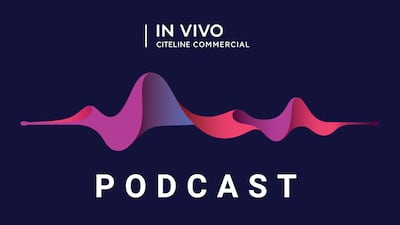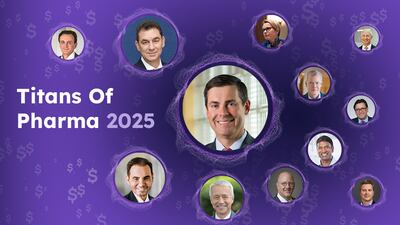
Leadership
Pharma leaders are shifting from AI pilots to enterprise-scale deployment, favoring external partnerships for efficiency gains while maintaining tight control over sensitive clinical data.
MoonLake Immunotherapeutics is racing ahead in the biotech space with its innovative nanobody SLK and a transformative $500m non-dilutive financing deal. In this episode, its CEO and CFO discuss the company’s rapid clinical progress, financial strategy and ambitions to reshape inflammatory disease.
Aneesh Karatt-Vellatt is leading the charge to redefine how ion channels and G protein-coupled receptors (GPCRs) are targeted with antibody therapies, one of the most notoriously challenging classes of drug targets.
In the latest podcast interview, Phil L'Huillier, CEO of Scancell, discussed the company's work in cancer vaccine development, and its selection as the first British biotech to be a part of the NHS Cancer Vaccine Launch Pad.
In Vivo spoke with Edward Ahn, CEO of Medipost, a Korean company that has developed stem cell therapies from cord blood, on how they are working across regulatory markets to provide a novel treatment for degenerative diseases.
Rising Leader Abbas Kazimi's leadership at Nimbus Therapeutics combines immigrant resilience, patient-first partnerships, contrarian strategic bets and a deeply personal mission driving breakthrough drug discovery innovation.
Agnès Arbat, CEO of Oxolife and winner of the EU Women Innovators Prize, joins In Vivo to discuss OXO-001, a novel non-hormonal treatment aimed at improving embryo implantation in IVF. She shares insights from her biotech journey and the future of fertility innovation.
An interactive look at recent executive-level company changes and promotions in the biopharma, medical device and diagnostics industries.
Joshi joins the parent company of Citeline, which houses flagship publications In Vivo, Scrip and Pink Sheet, to focus on AI, business harmonization and long-term growth.
Karen Rodriguez Lorenc has overseen linvoseltamab's development and subsequent approvals in Europe and the US. She talked to In Vivo about how patient-centric drug development philosophy is core to her leadership, and why she doesn't believe in failure.
In Vivo sits down with Ying Tam, CSO at Acuitas Therapeutics, to discuss the company's role in delivering the first personalized CRISPR treatment to an infant and the clinical implications of new lipid nanoparticle technologies.
The big pharma CEO with the highest-valued compensation in 2024 was David Ricks of Eli Lilly, while Pfizer and J&J executives slipped into third and fourth place behind AbbVie's now retired chief Richard Gonzalez. European firms brought up the rear.
While biopharma companies experiment with genAI, agentic AI is rapidly shifting the work paradigm towards one of autonomous digital workers that can handle entire process flows.
UK biotech targets the root cause of metabolic disease while preserving muscle mass in a crowded obesity market.
MedTech Forum 2025 was less MDR-focused than in previous years, as macro issues and exogenous threats were forced further into the center of medtech business thinking.
In a conversation with In Vivo, CEO Jon Congleton discusses Mineralys’s data-rich journey toward an NDA filing, the significance of recent trial wins and how its candidate may offer a dual benefit in blood pressure and renal protection.
Neha Krishnamohan, CFO of Artiva Biotherapeutics, brings Wall Street precision to biotech innovation, helping lead the company through a successful IPO while advancing NK cell therapies for cancer and autoimmune diseases.
As president of US Hematology at J&J, June Lanoue's leadership approach focuses on improving patient outcomes and organizational development. Her career path demonstrates the role of curiosity and adaptability in health care advancement.
Bristol Myers Squibb executive Doxie Jordan discusses his path to global commercial leadership and the principles guiding pharmaceutical market strategy
Devika Wood, CEO of Brain+, explains the importance of developing health tech solutions for dementia and the growing need to both raise awareness and improve overall access to nondrug interventions like CST.















